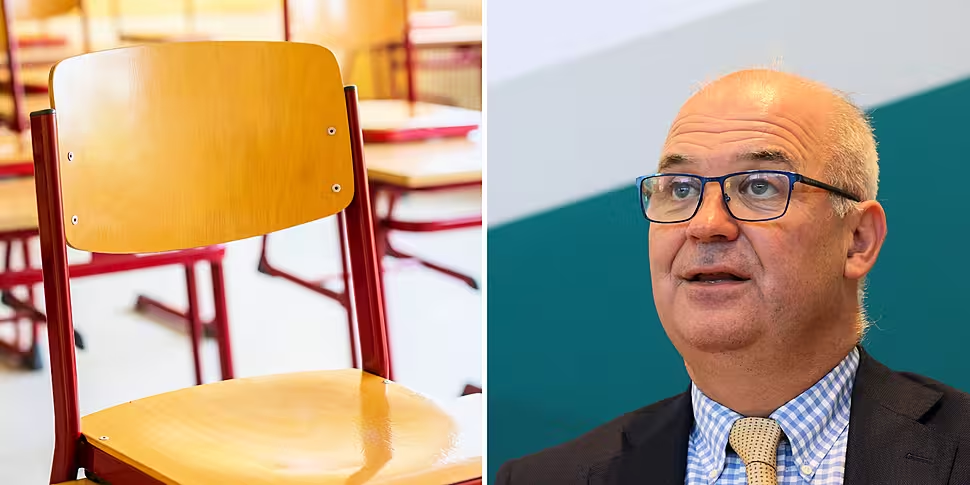NPHET's comments about COVID-19 transmission in schools are "mystifying", according to Professor Aoife McLysaght.
She was speaking after the announcement that rules around contact tracing and self-isolation for primary school children are changing.
Children aged 12 or under who are identified as close contacts in non-household settings (including schools and creches) and who are not symptomatic will no longer be required to restrict their movements.
CMO Dr Tony Holohan says NPHET is now "reassured that the reopening of schools has not led to an increase in transmission of COVID-19 amongst school-going children or more widely across the population".
He said "now is the right time" to change the approach to close contacts.
NPHET's Professor Philip Nolan, meanwhile, said "opening schools has had little effect on transmission of the virus" and a massive spike in community testing only detected a "modest number" of extra cases.
He suggested "the risks of allowing asymptomatic in-school contacts to continue schooling is low".
There is no evidence that the reopening of schools has led to an increase in transmission or levels of infection amongst school-going children or more widely across the population. 1/14 pic.twitter.com/9Bp6bwh4Rh
— Professor Philip Nolan (@PhilipNolan_SFI) September 22, 2021
Professor McLysaght - Professor of Genetics at Trinity College Dublin and member of the Independent Scientific Advocacy Group (ISAG) - told Newstalk Breakfast the ‘evidence isn’t there’ in Ireland to support Tony Holohan’s comments.
She said: “I don’t think he’s making up stuff, but I don’t think he can make such a strong statement with great confidence after this amount of time.
“They’re trying to say it didn’t cause a big increase, but it’s mystifying.
“We know internationally that school spread happens… there’s no magic property of schools.
“If you want to protect the academic year, what we should be saying is there should be high-quality masks for all children - including primary school children. That is much less of a disruption than having to go home or close schools.”
HIQA has ruled out a requirement for younger children to wear masks during the school day, suggesting the "benefits are likely to be small" despite evidence also suggesting the harms of face mask use in children are minor.
Professor McLysaght says she doesn't agree with the HIQA stance, observing: “I’m just reading international papers - there’s no evidence in that age group that it causes any harm.”
"Closing our eyes to it doesn’t help"
In terms of the contact tracing change, Professor McLysaght suggested it's "just blindfolding" the public health response in schools.
She said: "We don’t have masks, we don’t have air filtration systems - without those things, the only thing that’s left is contact tracing.
“I understand people don’t want to have to do these things anymore - but I think closing our eyes to it doesn’t help.”
The Trinity professor said case numbers are still high, and it's "only logical" that children can catch and spread the virus in schools.
She noted: "We should be trying to manage this, not ignore it - and you can’t manage what you don’t measure."
She added that the cost of installing air filtration systems in classrooms would be "small change" compared to the money spent so far on dealing with the pandemic.









